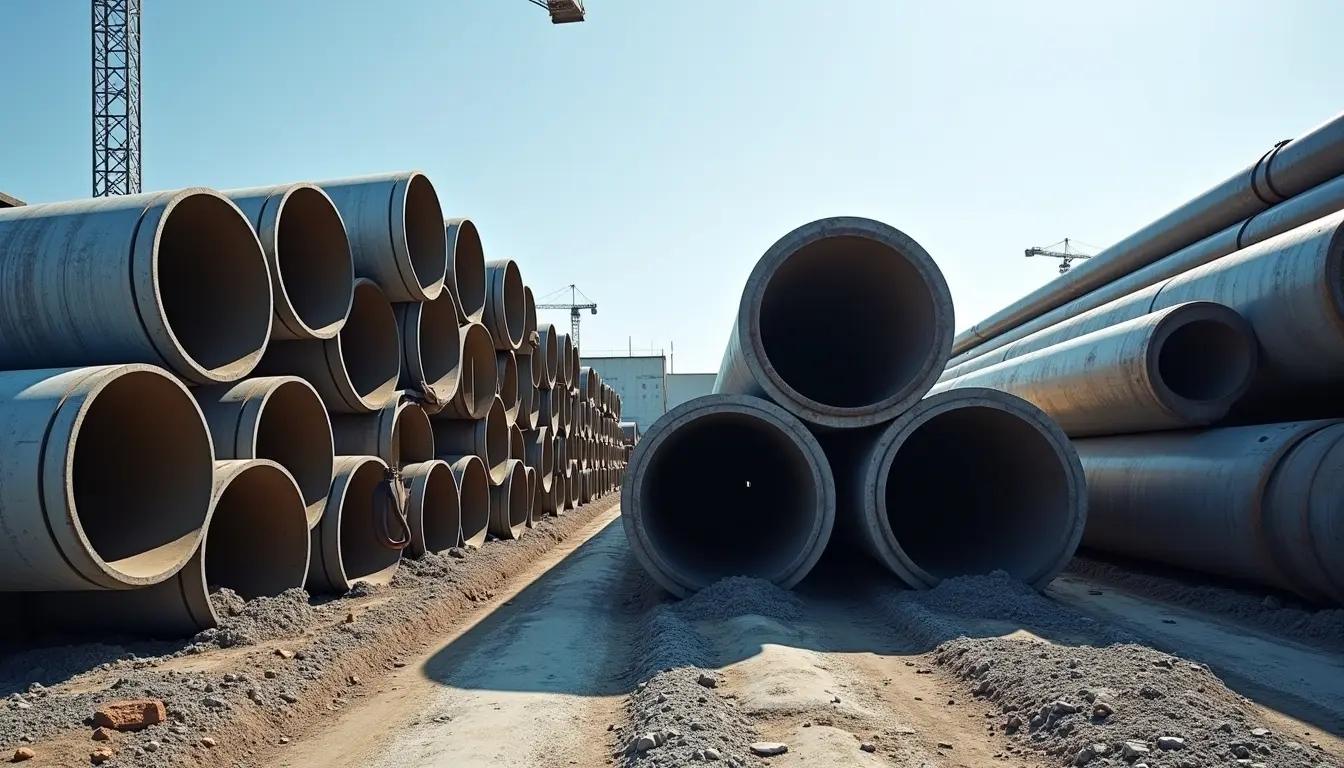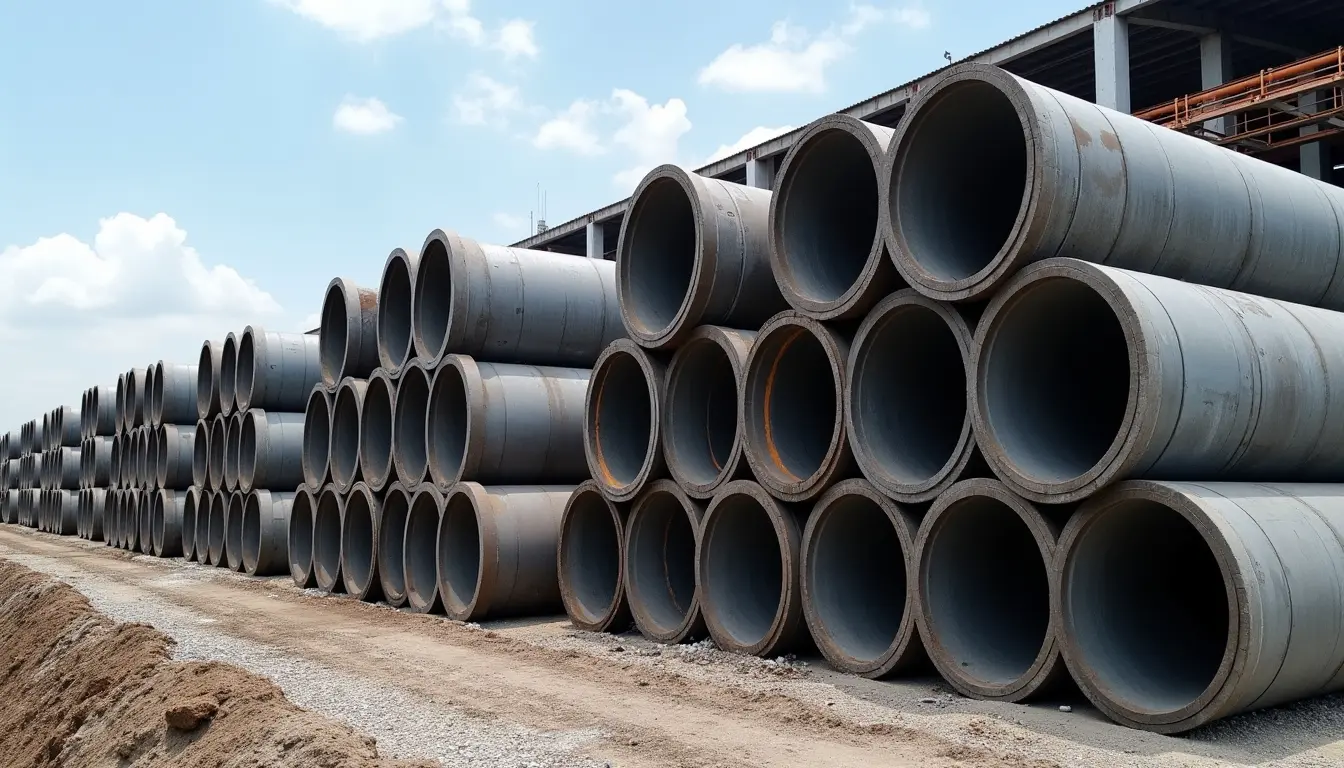Ductile Iron vs. Steel Pipes: Strength, Durability, and Applications in Water Projects

In large-scale infrastructure and water projects, selecting the right type of pipe material is a critical decision that impacts both performance and project longevity. Two of the most widely used materials in the industry are ductile iron pipes (DIP) and steel pipes. While both offer unique strengths, their differences in durability, corrosion resistance, and applications make them suitable for distinct project environments.
This article breaks down the advantages, disadvantages, and use cases of ductile iron and steel pipes to help engineers, contractors, and procurement specialists make informed choices.
Ductile Iron Pipes (DIP)

Ductile iron pipes have been a mainstay in municipal water supply networks for decades. Made from cast iron treated with magnesium to increase flexibility, ductile iron combines the strength of cast iron with added toughness.
Key Advantages:
- Durability: Highly resistant to impact and heavy soil loads, making them ideal for underground installations.
- Corrosion Protection: Usually lined with cement mortar and externally coated with zinc or bitumen for enhanced longevity.
- Ease of Installation: Push-on and mechanical joints allow for efficient on-site assembly.
- Hydraulic Performance: Smooth interior lining minimizes friction, improving flow efficiency.
Typical Applications:
- Municipal water distribution systems
- Sewage and wastewater pipelines
- Irrigation projects
Steel Pipes
Steel pipes, on the other hand, are renowned for their tensile strength and adaptability in a wide range of industrial and infrastructure applications. They are particularly valuable where high-pressure systems or structural strength are required.
Key Advantages:
- High Strength-to-Weight Ratio: Can handle extreme internal pressures.
- Versatility: Suitable for water, oil, gas, and industrial transport.
- Fabrication Flexibility: Can be welded and manufactured in custom sizes.
- Longevity with Protection: When coated with galvanization, epoxy, or polyethylene, steel pipes resist corrosion effectively.
Typical Applications:
- Industrial plants
- Oil and gas pipelines
- High-pressure water transmission
- Structural supports in construction
Comparison Table
| Feature | Ductile Iron Pipes (DIP) | Steel Pipes |
| Durability | Excellent for underground & heavy loads | Excellent for high-pressure applications |
| Corrosion Resistance | High (with cement lining & external coat) | Moderate (requires protective coatings) |
| Ease of Installation | Easy, standardized joints | Requires skilled welding/fittings |
| Cost | Cost-effective for municipal systems | Higher cost, but longer lifespan if coated |
| Best Use Cases | Municipal water, sewage, irrigation | Industrial, oil & gas, high-pressure lines |
Conclusion
Both ductile iron and steel pipes are indispensable in the infrastructure and waterworks sector.
- If your project involves municipal water distribution or underground pipelines, ductile iron is often the preferred choice for its durability and ease of installation.
- For industrial plants, high-pressure systems, or oil and gas projects, steel pipes provide unmatched strength and flexibility.
At RZ Oman, we source reliable ductile iron and steel pipes from reputable manufacturers in South Africa, India, and China, ensuring quality, timely delivery, and competitive pricing for Oman’s growing infrastructure projects.
